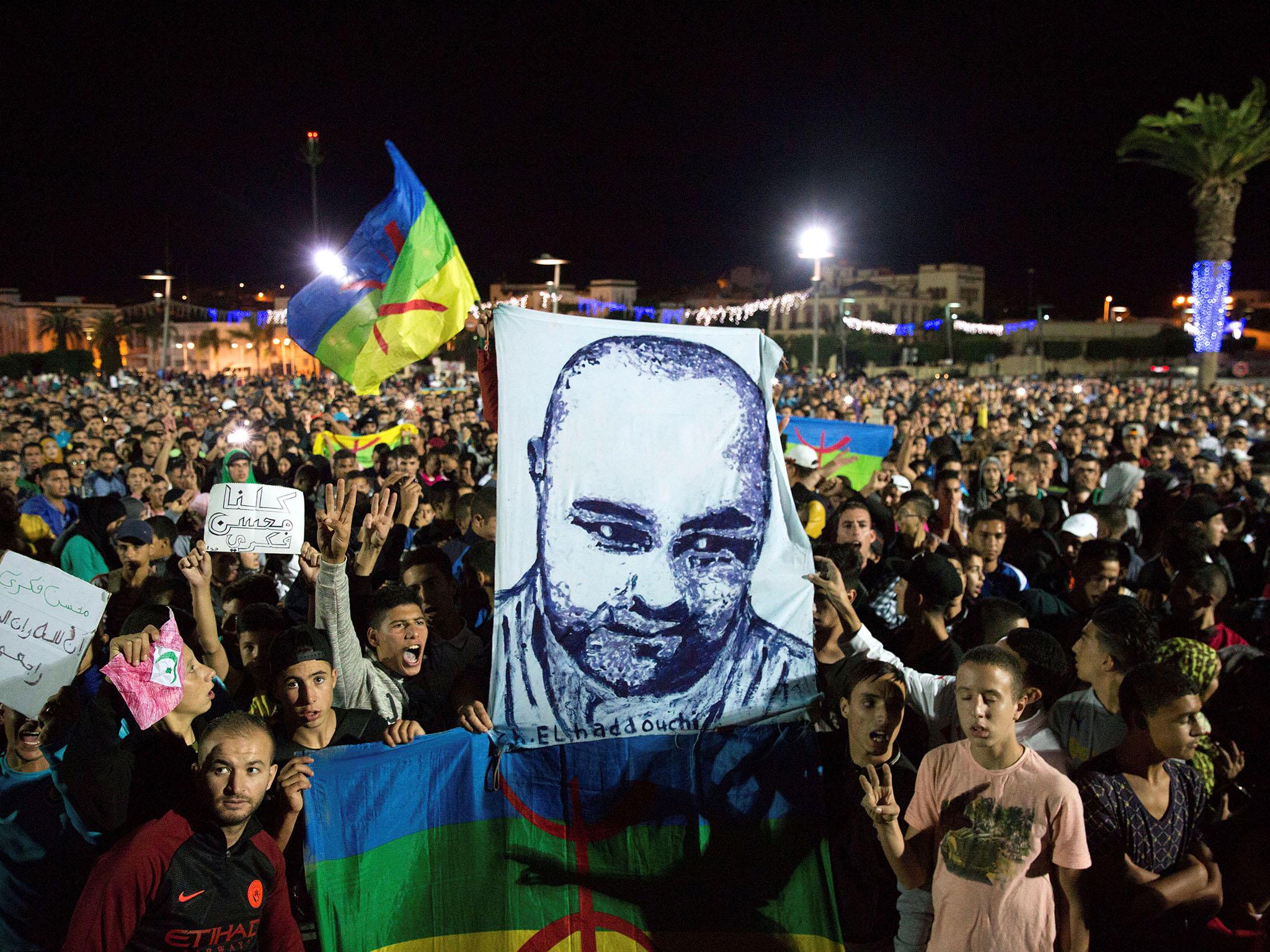Morocco fish seller death: 11 under arrest after vendor crushed in rubbish truck
The death of Mouhcine Fikri has triggered protests in cities across the country

Your support helps us to tell the story
From reproductive rights to climate change to Big Tech, The Independent is on the ground when the story is developing. Whether it's investigating the financials of Elon Musk's pro-Trump PAC or producing our latest documentary, 'The A Word', which shines a light on the American women fighting for reproductive rights, we know how important it is to parse out the facts from the messaging.
At such a critical moment in US history, we need reporters on the ground. Your donation allows us to keep sending journalists to speak to both sides of the story.
The Independent is trusted by Americans across the entire political spectrum. And unlike many other quality news outlets, we choose not to lock Americans out of our reporting and analysis with paywalls. We believe quality journalism should be available to everyone, paid for by those who can afford it.
Your support makes all the difference.Police in Morocco have arrested 11 people suspected of involuntary manslaughter over the death of a fish seller whose crushing in a rubbish truck sparked widespread demonstrations, prosecutors said on Tuesday.
Mouhcine Fikri, 31, was killed on Friday in the northern city of Al-Hoceima as he tried to protest against the seizure and destruction of swordfish, which are not allowed to be caught at this time of year.
His death in the Rif – an ethnically Berber region long neglected and at the heart of a 2011 protest movement for reform – has triggered outrage in other cities including the capital Rabat.
It was the self-immolation of a street vendor in Tunisia in late 2010 in protest at police harassment that sparked Tunisia’s revolution and the Arab Spring uprisings across the rest of the region the following year.
The 11 suspects were brought before an investigating magistrate on Tuesday in connection with allegations that also include forgery of public documents, a prosecution statement said.
Two interior ministry employees, as well as two fisheries officials and the head of the local veterinary services were among those arrested, said the prosecution.
The five suspects as well as three rubbish collection workers were remanded into custody, it said, without identifying the rest of those arrested.
More than 20 people have been questioned during the investigation, according to the statement carried by the official MAP news agency.
The probe found the driver had received a signal from a rubbish collection worker to turn the crusher power on while Mr Fikri was in the truck with several people trying to prevent fish being loaded.
The investigation found there was “no order to assault the victim by any party”.
Some protesters have accused the authorities of intentionally starting the crusher while Mr Fikri was in the back of the truck.
Thousands attended Mr Fikri’s funeral in Al-Hoceima on Sunday after an image of his inert body — head and arm sticking out from under the lorry’s crusher — went viral on social media.
Large crowds gathered in the town again on Monday evening waving Berber flags and demanding justice for “martyr Mouhcine”.
King Mohammed VI had been quick to order a “thorough and exhaustive investigation” into Mr Fikri’s death and sent the interior minister to offer condolences to his family.
The king, the scion of a monarchy that has ruled for 350 years, relinquished some of his near-absolute power following the massive Arab Spring protests of 2011.
According to the findings of the investigation into Mr Fikri’s death, the vendor had bought nearly 500kg (1,100lbs) of swordfish, which is subject to a fishing ban in the autumn, from fishermen in Al-Hoceima harbour.
He entrusted his goods to a third party whose vehicle evaded controls at the port exit but was stopped in the city.
A fisheries official who attended the scene found violations and police informed the public prosecutors who ordered the confiscation of the fish, MAP said.
A veterinary official then ordered its destruction because of the lack of certification of origin.
The allegations of forgery of public documents relate to the destruction order issued to the rubbish collection company, according to prosecutors.
The Moroccan Association of Human Rights warned on Sunday of a “possible repeat” of the 2011 protests in the Rif, just a week before Morocco hosts international climate talks in Marrakesh between 7-18 November.
AFP
Join our commenting forum
Join thought-provoking conversations, follow other Independent readers and see their replies
Comments